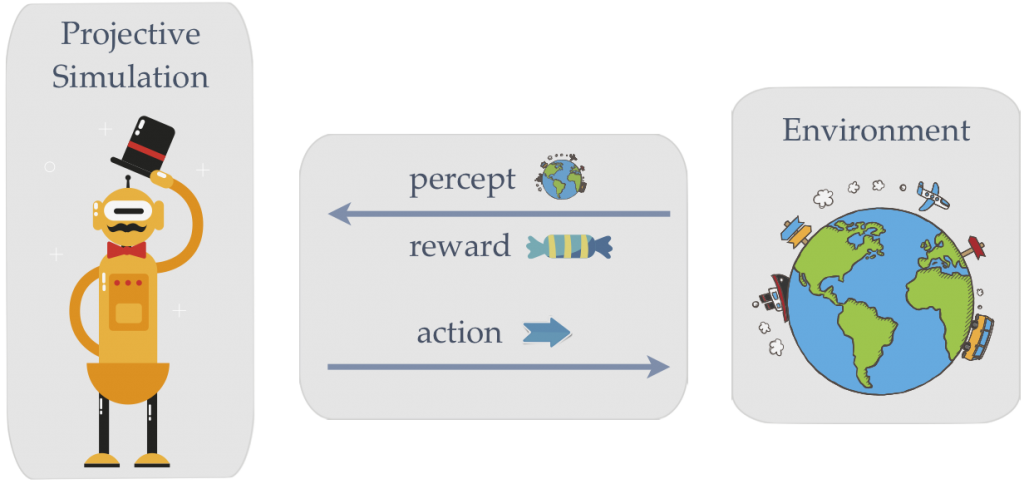Projective simulation (PS) is a framework for studying agency from a physical perspective. PS agents learn from interactions with their environment, and their decision making is based on episodic memory. The inner workings of PS agents are based on random walks on graphs, which admit a straightforward physical realization. A particular exciting feature of PS is the existence of a quantum version — that is, an agent that can for example exploit quantum effects to deliberate and learn more efficiently. At the same time, the PS framework has been used to discuss deeper conceptual and philosophical questions, such as what it means to be an agent and whether a simple physical system can achieve that status.
From a more practical perspective, PS can be used as a model for reinforcement learning and one may ask what kinds of tasks PS agents can master and how well they perform compared to other types of reinforcement learning. For example, PS agents have been applied successfully in the context of complex skill learning in robotics, and in the design of state-of-the-art quantum experiments.
Projective simulation was first introduced and developed by the Briegel group at the University of Innsbruck (you can learn more about this group from their homepage). Since then, it has been used and further developed in different contexts. This website showcases some of the things you can do with projective simulation. For a start, check out the videos in the sidebar!
